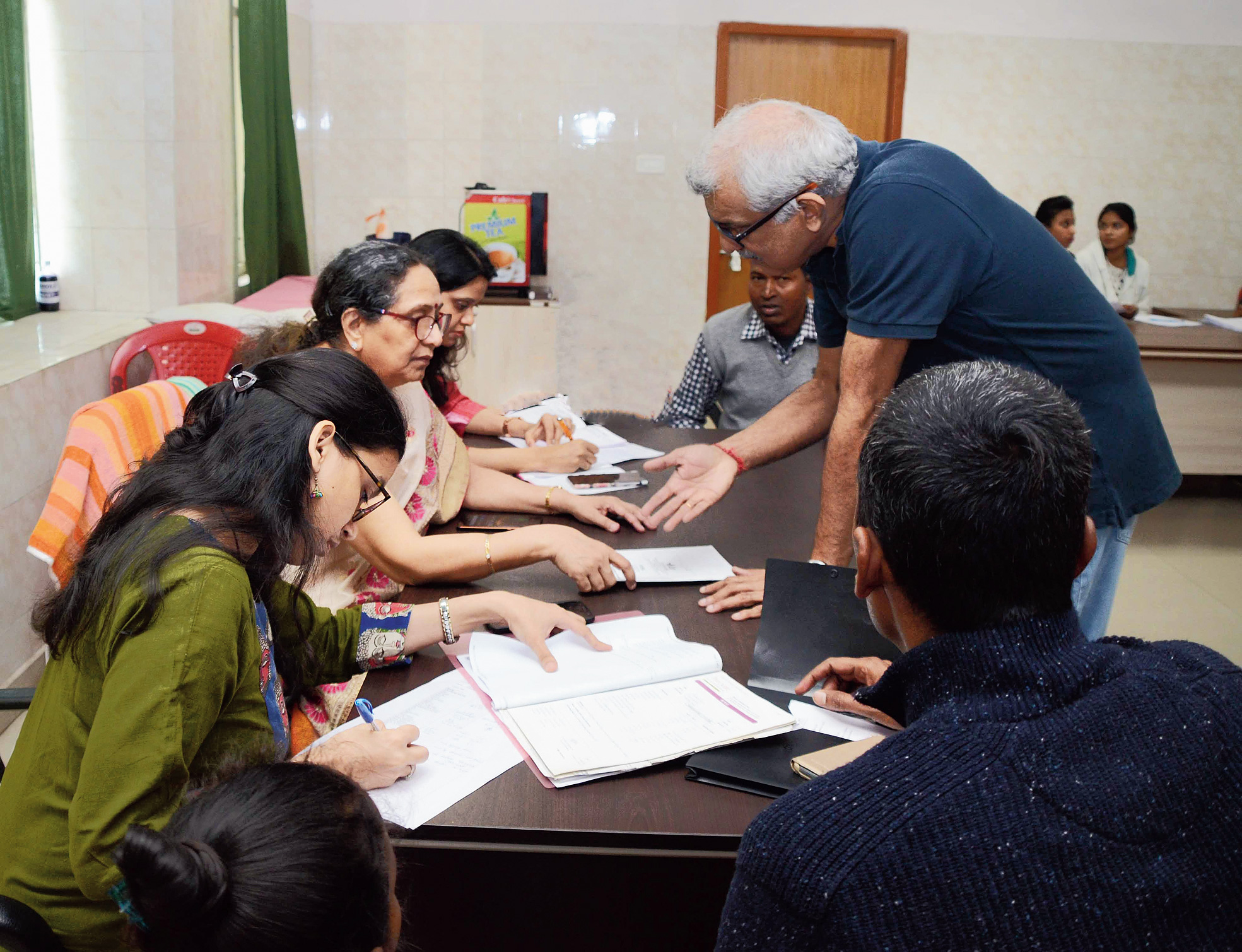There is a code of ethics, besides standard protocol, for blood donation that is rarely followed in the country and this is the genesis of transfusion-related diseases, an expert from Mumbai said.
Mamta Manglani, the head of Comprehensive Thalassemia Care, Paediatric Haematology Oncology & Bone Marrow Transplant Centre, who is in the city to facilitate a two-day consultation camp at Ranchi Sadar Hospital, beginning Friday, said the procedural enquiry before collecting blood from a donor was often ignored.
“We have various advanced technologies to ensure that a donor is clean (free of diseases). But, in many cases, these tests are given a bypass. Also, the authorities concerned fail to ask a donor about their sex partners and addictions to say things like alcohol or drugs,” Manglani said.
At least seven thalassemic children, being treated at the day care centre of sadar hospital, tested positive for HIV and HCV infections in August, taking the lid off unsafe practices at blood banks and healthcare institutions in the state.
The camp, organised in association with Jharkhand Thalassemia Foundation and Think Foundation, will offer free medical consultation to ailing children, 27 of whom were examined on Day One. Doctors will be trained on advanced technologies in thalassemia treatment on Saturday.
“Awareness (among both doctors and patients) is the key to safe transfusion, Manglani said. “People should know when to seek transfusion and doctors should be able to advice safe blood source. One must remember that the level of haemoglobin in a health person ranges between 10g/dl to 12g/dl. Those with lower levels should not be allowed to donate blood,” Manglani said, adding that the number of day care centres in Jharkhand must be increased.
The code of ethics say blood donation shall be voluntary basis and no remuneration shall be given to the donor. Also, there shall be no compulsion made on an individual to donate blood.
World Health Organisation guidelines say the donor should understand the risks of donating infected blood to others and his/her ethical responsibility to the recipient. He or she should provide informed consent to donation of blood and to the subsequent use by the transfusion service.
Individuals with HIV/AIDS, Hepatitis B, Hepatitis C or syphilis cannot be allowed to donate blood. The same applies to intravenous drug users or individuals sharing sharp injectable objects; persons with multiple sex partners; commercial sex workers; and individuals indulging in unsafe sex, among others.
Transfusion therapy must be carried out under the overall responsibility of a registered medical practitioner or other qualified and authorised healthcare professional.
A Khunti woman, who came with her 10-year-old daughter at the camp, said the child was detected with thalassemia when she was barely five months old.
“My husband, an auto-rickshaw driver, earns around Rs 10,000 a month. Half of it was spent on treatment until the day care centre here started in July. But, we don’t want our daughter to die,” she said, referring to transfusion risks and hoping the government would do something to rein in unsafe blood donation.











